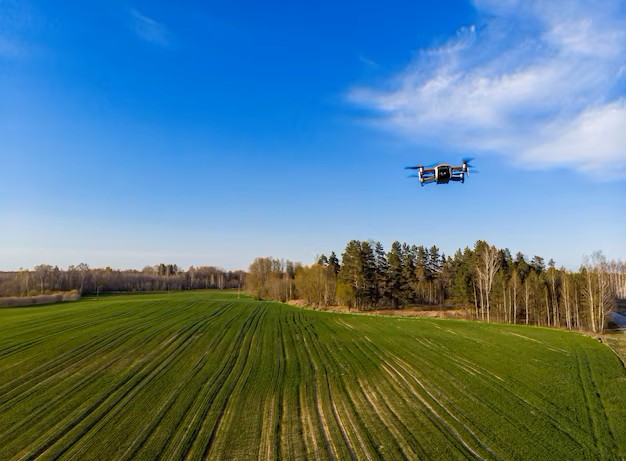The use of smart drone networks in American agriculture is revolutionizing farming efficiency, sustainability, and productivity. These interconnected aerial systems enable real-time crop monitoring, precision spraying, and automated data collection, helping farmers make informed decisions. As South Africa faces challenges such as climate change, water scarcity, and food security, adopting smart drone networks could significantly enhance the country’s agricultural landscape.
How Smart Drone Networks Work
Unlike individual drones, smart drone networks operate as a coordinated system, sharing data and working together to cover vast farmland efficiently. Equipped with advanced sensors, AI-powered analytics, and GPS tracking, these drones can map fields, analyze soil conditions, and detect crop diseases in real time. By integrating with cloud-based platforms, farmers receive instant reports, allowing them to optimize irrigation, fertilization, and pest control strategies.
The Benefits for South African Farmers
- Improved Crop Health Monitoring – Drones provide high-resolution imagery that detects plant stress, nutrient deficiencies, and pest infestations before they become widespread.
- Precision Agriculture for Resource Efficiency – Targeted spraying of water, fertilizers, and pesticides reduces waste, cutting costs while promoting sustainability.
- Faster and More Accurate Data Collection – Automated drone systems can scan entire farms in minutes, replacing time-consuming manual inspections.
- Climate Adaptation – With unpredictable weather patterns, real-time drone data helps farmers respond proactively to droughts, floods, and temperature fluctuations.
- Boosted Productivity and Profitability – Optimized farm management leads to higher yields, better-quality crops, and increased revenues.
Challenges and Considerations for South Africa
While smart drone networks offer immense potential, several factors must be addressed for successful implementation in South Africa:
- Cost and Accessibility – Advanced drone systems can be expensive, making financial support or subsidies crucial for widespread adoption.
- Regulatory Framework – South Africa needs clear policies on drone usage in agriculture, including airspace management and licensing requirements.
- Infrastructure and Connectivity – Reliable internet access is necessary for real-time data transmission, particularly in rural farming areas.
- Farmer Training and Awareness – Education programs will be essential to ensure farmers understand and maximize the benefits of drone technology.
The Future of Drone-Assisted Farming in South Africa
With government and private sector support, South Africa can harness smart drone networks to transform its agricultural sector. By learning from the USA’s success, South African farmers can increase efficiency, reduce environmental impact, and strengthen food security. As technology advances and costs decrease, smart drone networks could become a game-changer, ushering in a new era of precision farming in the country.
Join 'Farmers Mag' WhatsApp Channel
Get the latest Farming news and tips delivered straight to your WhatsApp
CLICK HERE TO JOIN






